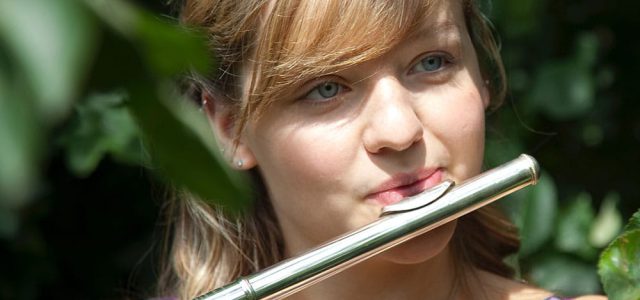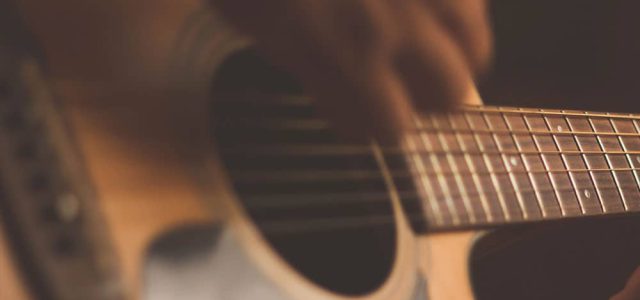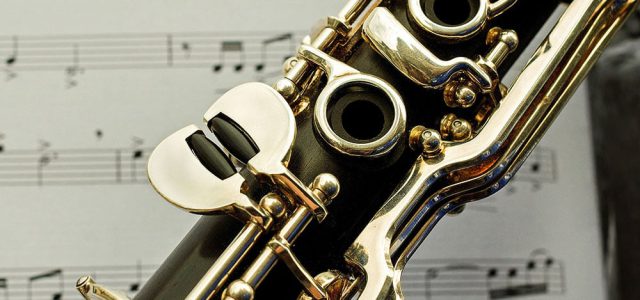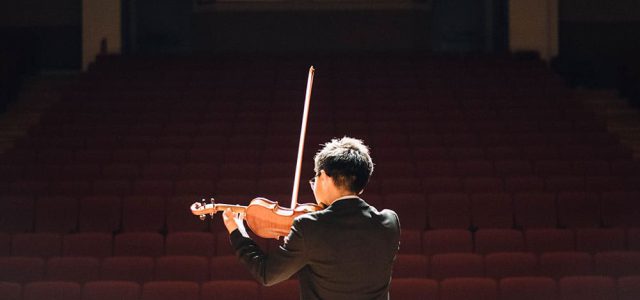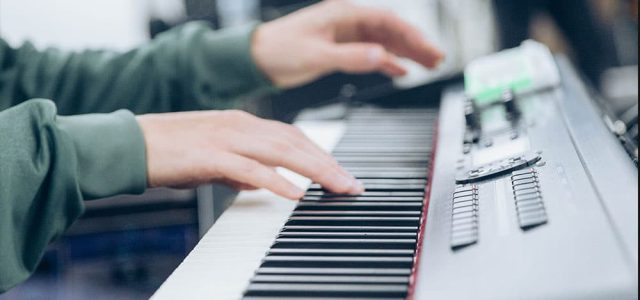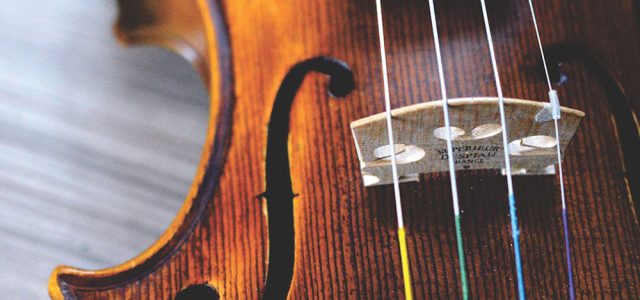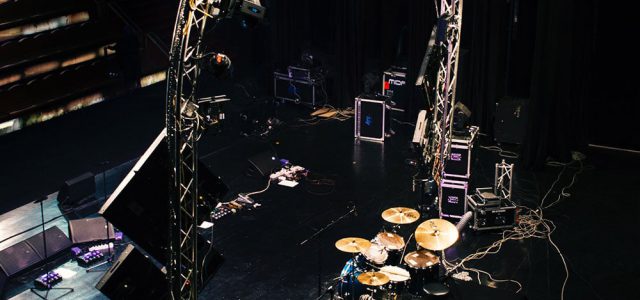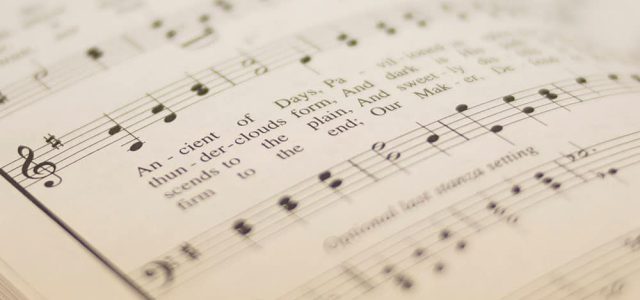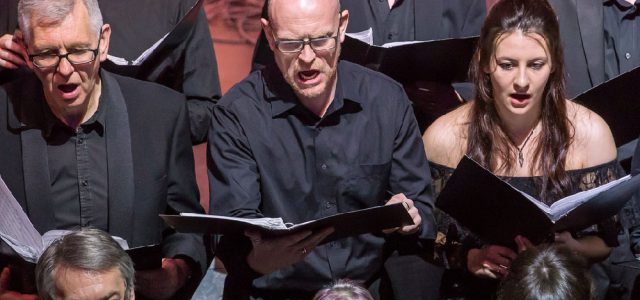Welcome to the International Music Examinations Body
IMEB's syllabi are designed to meet the needs of those teaching and learning music, speech, drama, and theatre arts.
The examinations will be found to be comprehensive and catering for those interested academically or as a performer. The lists contain works ranging from early times to up-to-date contemporary examples, plus own choice options.
All work is carefully and sequentially graded. Teachers preparing students for IMEB examinations will have a very sound outline on which to develop their lessons. IMEB examinations make provision for many abilities and give a goal for students in their studies. They provide a sense of purpose and direction and can be taken in addition to other activities, as they are not intended to be the only studies in a student’s year. Examination reports reflect a reliable assessment of progress and, by comments and marks, assist individual development.
In each IMEB syllabus, teachers will find the requisites of a system of training for their students through the Grades to the Diploma levels. The aim is to encourage personal development in music, speech, drama, theatre arts and performance in each individual. It is the wish of the IMEB to help teachers and their students in the development of their skills, acquisition of knowledge and enhanced self-confidence according to age and experience, not to discourage and set impossible or unrealistic standards.
Our syllabi:
This syllabus is designed to foster individual development in acquiring the skills of Effective Public Speaking. Related theory, background knowledge and enhanced self-confidence should assist candidates in progressing through the carefully sequenced examinations.
Each examination consists of various sections totalling 100 marks.
Specific works are not prescribed in every examination section in order for candidates and teachers to explore the literature and material appropriate to their own choices, stage level, age, interests, experience and requirements of the examination. It is expected that all items will be thoughtfully and responsibly selected by candidates and teachers, and provide challenge and motivation for individuals in order to promote intended personal development.
Examiners will expect levels of achievement commensurate to the candidate’s age and stage level, and to show thorough preparation of each examination component and section. Specified time durations should be adhered to reasonably closely, but not exceeded.
All prepared work should be memorised except for sight reading, impromptu items or where otherwise stated.
Standard Grade Examinations which comprise technical work, ear tests, sight reading, general knowledge and List pieces.
This sequence of grades is designed to foster individual development in the art of Flute as a form of artistic expression and communication. Related skills, knowledge and enhanced self-confidence should be acquired by progressing through the grades according to age and experience.
Examinations are arranged into sections plus technical work, general knowledge, aural tests and sight reading. Total 100 marks.
One selection should be made from the list of specified works or own choice. Own choices provide an opportunity for teachers and candidates to explore the repertoire appropriate for individual grade level, age, interest and experience, and to have some ownership of their examination program. It is expected that all own choice items will be thoughtfully and responsibly selected and provide challenge and motivation for individuals in order to assist personal development in chosen area of music.
NB In Associate and Licentiate Examinations the candidate may consider also including one or more “Own Choice” selections in addition to the required four pieces in order to perform for the suggested examination duration.
Specified time durations for each examination level should be adhered to reasonably closely, but not exceeded.
All components in the technical work, aural tests and sight reading are specified.
Examiners will expect levels of achievement commensurate to the individual candidate’s age and grade level and to show thorough preparation for each examination component and section.
Performance Examinations which do not require assessment in technical work, ear tests, sight reading or List pieces.
This sequence of grades is designed to foster individual development in the art of Guitar (Classical and Modern) as a form of artistic expression and communication. Related skills, knowledge and enhanced self-confidence should be acquired by progressing through the grades according to age and experience.
Efforts have been made to select pieces from a reputable but small number of collections to help the candidates avoid the necessity to purchase a large variety or number of expensive books.
In List B, or as indicated, accompaniment should be used in the Modern Guitar Syllabuses either by another guitar or a backing track, and is required from Grade 1 in specified sections.
Technical work should be played from memory. Use of music in the technical section will incur a loss of marks.
Examinations are arranged into sections plus technical work, general knowledge. aural tests and sight reading. Total 100 marks.
One selection should be made from each List at each level/grade either from the list of specified works or own choice. The specified set pieces are suggestions only to indicate the level for each examination, and pieces of similar standard may be substituted if preferred. Own choices provide an opportunity for teachers and candidates to explore the repertoire appropriate for individual grade level, age, interest and experience, and to have some ownership of their examination program. It is expected that all own choice items will be thoughtfully and responsibly selected and provide challenge and motivation for individuals in order to assist personal development in chosen area of music.
Specified time durations for each examination level should be adhered to reasonably closely, but not exceeded.
All components in the technical work, aural tests and sight reading are specified.
Examiners will expect levels of achievement commensurate to the individual candidate’s age and grade level and to show thorough preparation for each examination component and section.
Theory Examinations are not required for Grade examinations, but teachers are advised to prepare candidates in this area so that they will have a sound basis for the Musical Knowledge Papers (written exams) which are part of the Diploma examinations.
This sequence of grades is designed to foster individual development in the art of clarinet as a form of artistic expression and communication. Related skills, knowledge and enhanced self-confidence should be acquired by progressing through the grades according to age and experience of the individual.
Examinations are arranged into sections plus technical work, general knowledge, aural tests and sight reading. Total 100 marks.
One selection should be made from the specified works in each section list. Own choices provide an opportunity for teachers and candidates to explore the repertoire appropriate for individual grade level, age, interest and experience, and to have some ownership of their examination program. It is expected that all own choice items will be thoughtfully and responsibly selected and provide challenge and motivation for individuals in order to assist personal development in chosen area of music.
All components in the technical work, aural tests and sight reading are specified.
Examiners will expect levels of achievement commensurate to the individual candidate’s age and grade level and to show thorough preparation for each examination component and section. Specified time durations should be adhered to reasonably closely, but not exceeded.
Improvisation
Although, this is not a requirement, teachers should encourage their students to develop this unique skill. Pieces that are contained within the graded lists of C and D may be embellished at any grade according to the development of the student.
Instrument
Candidates may use the standard B Flat clarinet throughout all graded examinations. However, it is advisable but not essential, that candidates introduce the A clarinet as well as the B flat at Grade Six and that both clarinets are used in the examinations.
The IMEB Board felt, after discussions with teachers, that there is great need for and interest in a syllabus of this kind and are now adding it to the raft of IMEB exams.
This sequence of grades is designed to foster and showcase individual development in the art of presenting songs from ‘stage shows’ as a particular and popular form of artistic expression and communication. Related skills, knowledge and enhanced self-confidence should be gained by progressing through the grades according to age and experience.
Examinations are arranged into sections. Total 100 marks each examination.
It is important to remember that the list of categories and associated examples are offered as a sample guide only to the different genres of musical theatre. Teachers and candidates are expected and encouraged to explore the vast repertoire available in selecting songs which are appropriate to the candidate’s age and ability. This gives an opportunity to reflect interests and experience of the candidate and to have some ownership of the examination program. All items must be thoughtfully and responsibly selected, (eg: ‘All That Jazz’ from Chicago may be perceived as an exciting choice but would not be entirely appropriate for a young girl. Similarly ‘Castle on a Cloud’ from Les Miserables would not be the best choice for an adult.) Song selections should provide challenge and motivation in order to assist personal development in the art of presenting ‘character’ songs with conviction, imagination and integrity.
The selections should be well-balanced and contrasting to comprise an entertaining bracket of songs at each grade. Examiners will expect levels of achievement commensurate to the individual candidate’s age and grade, and to show thorough preparation and rehearsal. Specified time durations are maximum and should be adhered to reasonably closely, but not exceeded.
Own Choice is available throughout the syllabus. Own choices are required within every specific category in each grade. ie ‘Sing any song from the following category’. One ‘own choice category option’ is also available at the end of each grade.
All work should be memorised. An accompanist must be provided for piano or keyboard. Accompaniment on guitar or other solo instrument may be appropriate for some songs. Instrumental backing tapes/CDs will be accepted for one number if essential (eg: in numbers from a Rock Musical). Vocals on backing tapes/CDs will not be accepted under any circumstances.
Use of one costume accessory and/or simple prop (not scenery items) to assist each character song presentation is optional in all grades, but is NOT assessable. These items should be readily and easily accessible on a chair on stage, and use of them should not delay the flow of the program.
eg:
- Mme Glavari (Merry Widow) – Fancy picture hat/fan
- Dorothy (Wizard of Oz) – Toy dog
- Bill (Mary Poppins) – Flat cap/brush
- Javert (Les Miserables) – Cloak
- Eliza (My Fair Lady) – Hat/basket of flowers
- Chef Louis (Little Mermaid) – Cook’s hat
These examinations are designed for candidates who wish to concentrate on the art of performing rather than the more academic side of music.
Preparatory Levels 1-3 require the performance of three different and contrasting music items.
Levels 1-5 require the performance of three different, contrasting brackets of performance items to take up the specified time.
Levels 6 and 7 require the performance of four different and contrasting brackets of items to take up the specified time.
Level 8 requires an appropriate 45 minute program of varied and contrasting music performance items, divided into four brackets.
Diploma in Music Performance requires appropriately varied and contrasting performance items to comprise a thoughtfully conceived 60 minute program of music, divided into four brackets, to reflect a range of styles, periods and cultures.
Candidates may wish to invite an audience to this performance and, whilst this is optional, it is strongly recommended in order to give the Music Performance a genuine sense of occasion, purpose and achievement. A suitable venue must be provided and a printed program available for audience members.
NB In each level, the candidate will be required to submit a suitably presented written program containing brief notes relating to the items selected for performance, and indicating research appropriate to age and stage of development.
Candidates in each level will also be required to verbally introduce the performance to be presented and to announce each individual item to the examiner.
Extra pieces may be included in each bracket if desired/necessary to make up the allotted examination time in all levels up to Level 7.
Memorisation of performance items is optional.
This sequence of grades is designed to foster individual development in the art of Speech and Drama as forms of artistic expression and communication. Related skills, knowledge and enhanced self-confidence should be acquired by progressing through the grades according to age and experience.
Examinations are arranged into sections. Total 100 marks.
Specific published works are not prescribed in every examination section in order for candidates and teachers to explore the literature appropriate for their grade level, age, interests and experience, and to have some ownership of their examination programs. Where particular works have been specified, teachers and candidates may substitute other selections of equal literary value and standard if preferred. It is expected that all such items will be thoughtfully and responsibly selected by teachers and candidates, and provide challenge and motivation for individuals in order to assist personal development in the art of Speech and Drama.
Examiners will expect levels of achievement commensurate to the individual candidate’s age and grade level and to show thorough preparation and rehearsal of each Speech and Drama examination component and section. Specified time durations should be adhered to reasonably closely, but not exceeded.
All work should be memorised except for sight reading items or where otherwise stated.
Use of prop or costume accessories to assist dramatic and character performance items are optional, unless stated otherwise. These accessories are not assessable. It is expected that judicious manipulation of text may occur in some exam items where one character only is portrayed, yet the presence of others is implied, the truth and integrity of the text will remain intact.
Written examinations are optional for Grades 6, 7 and 8, but are compulsory at Diploma level.
These examinations are designed for candidates who wish to concentrate on the art of performing rather than the more academic side of Speech and Drama.
Level 1 requires the performance of three different memorised items, comprising one example of each of drama, prose and poetry.
Levels 2 — 5 require the memorised performance of one drama bracket, one prose bracket and one poetry bracket each containing at least one item, to take up the specified time.
Levels 6 and 7 require four different carefully arranged brackets in which the items selected show a sense of contrast. This is essential in this programme.
Level 8 requires a 45 minute program in which the candidate demonstrates variety in performance style, mood and period. The items should be organised into four distinct brackets.
Diploma in Performance requires the candidate to present a one hour program arranged into four separate brackets containing varied and contrasting content in a range of performance styles, reflecting different periods, genres and cultures. The candidate may wish to base the program on a thematic concept, but this is optional. Candidates may wish to invite an audience to this performance. In this case, the candidate must provide a suitable venue.
NB In each level, the candidate will be required to submit a suitably presented written program containing brief program notes relating to the items performed, and indicating appropriate research.
Candidates in each level will also be required to verbally introduce the performance to be presented and to introduce each individual item to the examiner.
This Theatre Performance Syllabus consists of seven sequentially arranged grades and a performance diploma which is aimed at assessing the achievements of candidates at varying levels of individual development in music, speech, acting, mime, movement, dance and artistic expression which are the fundamental elements of the field of theatre performance. Each examination has 100 marks.
Specific published works are not prescribed in order for candidates to explore the literature/repertoire appropriate for their experience and grade level, and to have some ownership of their individual examination programs. It is expected that all material and items will be thoughtfully selected by candidates/teachers, and will reflect a responsible approach to skills development in the art of expression and communication. The published works selected as “own choice” items should contain a degree of challenge and motivation for the performer in order to assist personal development in competency.
These examinations are intended to encourage individuals of all ages to acquire skills and knowledge in theatre performance, to explore personal boundaries, and demonstrate personal artistic ability and professionalism in interpreting published works. Moreover, enhanced self-confidence and an understanding of the principles and practice of theatre performance should result from participating in this Syllabus.
Examiners will expect levels of achievement commensurate to the individual candidate’s age and grade level and to show thorough preparation and rehearsal of each performance item. Specific time durations should be adhered to reasonably closely, but not exceeded.
In items requiring music accompaniment, it is the responsibility of the candidate to provide recorded instrumental backing and a suitable player, or an accompanist with own keyboard. No amplification of any kind is required or permitted for any examinable item in this Syllabus.
Written programs, notes and discussion with examiner, where specified, should indicate that opportunities have been maximised for in depth contextual research. There should always be a thorough familiarity and understanding of entire works from which performance pieces have been selected.
Use of a prop or costume accessory to assist performance in “character” items is optional in all grades, but not assessable.
This sequence of grades is designed to foster individual development in the art of violin playing as a form of artistic expression and communication. Related skills, knowledge and enhanced self-confidence should be gained by progressing through the grades according to age and experience.
Examinations are arranged into sections. Total 100 marks each grade examination.
Where particular works have been specified, substitution may be made of works of equal standard if preferred. It is expected that such substituted items will be thoughtfully and responsibly selected by teachers and candidates, and provide challenge and motivation in order to assist personal development in the art of violin performance. This provides opportunity for exploration of the repertoire which would reflect interests and experience of the performer, and to have some ownership of the examination program.
The selection of music items presented should provide a well-balanced and contrasting program. Examiners will expect levels of achievement commensurate to the individual candidate’s age and grade level and to show thorough preparation and rehearsal of each examination component and section. Specified time durations should be adhered to reasonably closely, but not exceeded.
All components of technical work, ear tests, sight reading and general knowledge are specified.
An accompanist must be provided. Backing tapes will not be accepted.
This sequence of grades is designed to foster individual development in the art of classical singing as a form of artistic expression and communication. Related skills, knowledge and enhanced self-confidence should be gained by progressing through the grades according to age and experience.
Examinations are arranged into sections. Total 100 marks each grade examination.
Whilst songs should be selected from the suggested lists, candidates also have the option to present an “own choice” work which should be of a standard appropriate to grade and age. This provides opportunity for exploration of the repertoire which would reflect interests and experience of the performer, and to have some ownership of the examination program. Where particular works have been specified, substitution may be made of songs of equal standard if preferred. It is expected that such substituted items will be thoughtfully and responsibly selected by teachers and candidates, and provide challenge and motivation in order to assist personal development in the art of classical singing.
The selection of songs presented should provide a well-balanced and contrasting program. Examiners will expect levels of achievement commensurate to the individual candidate’s age and grade level and to show thorough preparation and rehearsal of each singing examination component and section. Specified time durations should be adhered to reasonably closely, but not exceeded.
All work should be memorised. All technical work and ear tests, sight reading and general knowledge are the same as for the Modern Singing Syllabus.
An accompanist must be provided for piano, keyboard or organ. Accompaniment on guitar may be appropriate for some songs. Backing tapes will not be accepted.
The overall philosophy of IMEB is one of encouragement
The warmth and personal attitude of your examiner allayed any fears my son may have had prior to his exam. He can't wait to take the next Grade. Thank you IMEB.
Get in touch
Fill out the form below and we’ll get back to you shortly. You can also go to the contact us page here.


